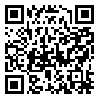Mon, Feb 23, 2026
[Archive]
Volume 6, Issue 4 (12-2014)
IJDO 2014, 6(4): 197-201 |
Back to browse issues page
Download citation:
BibTeX | RIS | EndNote | Medlars | ProCite | Reference Manager | RefWorks
Send citation to:



BibTeX | RIS | EndNote | Medlars | ProCite | Reference Manager | RefWorks
Send citation to:
Rahmanian M, Haghighi F S, Namiranian N. Management of Diabetes in Ramadan Fasting. IJDO 2014; 6 (4) :197-201
URL: http://ijdo.ssu.ac.ir/article-1-215-en.html
URL: http://ijdo.ssu.ac.ir/article-1-215-en.html
Abstract: (4334 Views)
Ramadan, the holy month of Muslims, is the ninth month of the Islamic calendar. During fasting, plasma glucose levels and circulating insulin decrease gradually and counter regulatory hormones such as glucagon and catecholamines tend to rise. Diabetic Muslims who insist on fasting should be aware of potential complications and techniques of decreasing the risks. Muslims should be evaluated 2-4 weeks before Ramadan and high risk patients should not fast. Low risk patients should receive adequate education and appropriate medication change to cope with fasting. During Ramadan frequent blood glucose monitoring is an effective method for preventing hypoglycemia. Nutritional change is an essential component for safe fasting. In this article we was review studies that evaluate changes that would affect diabetic patients in Ramadan.
Type of Study: Research |
Subject:
Special
Received: 2015/09/28 | Accepted: 2015/09/28 | Published: 2015/09/28
Received: 2015/09/28 | Accepted: 2015/09/28 | Published: 2015/09/28
| Rights and permissions | |
 |
This work is licensed under a Creative Commons Attribution-NonCommercial 4.0 International License. |





